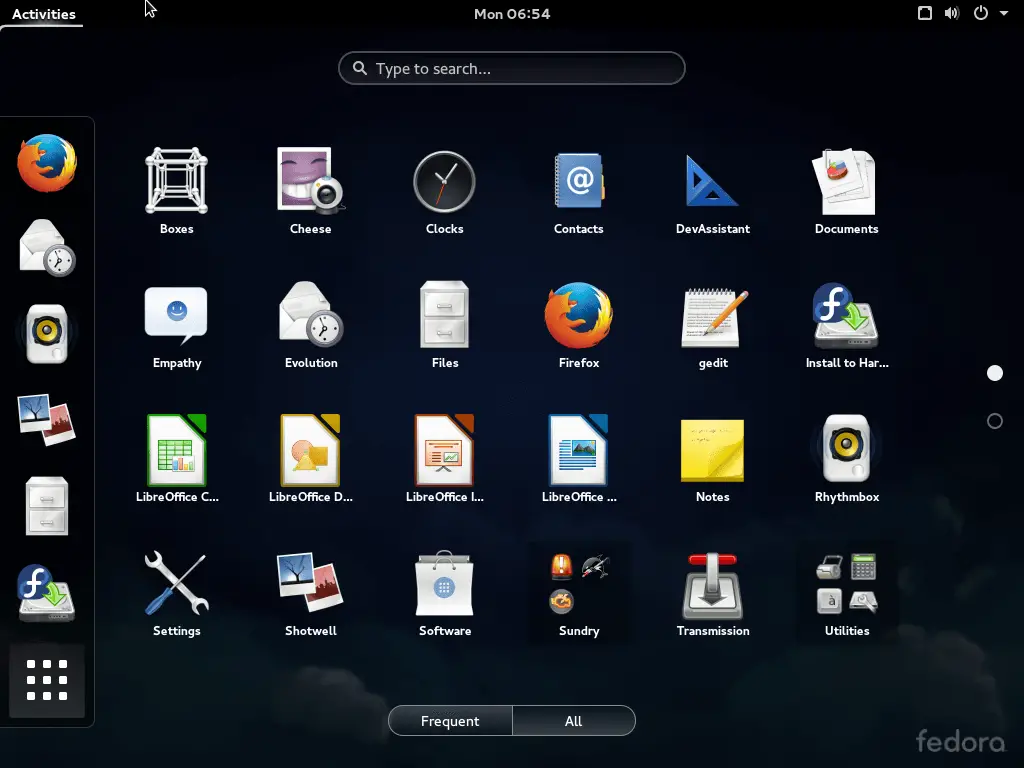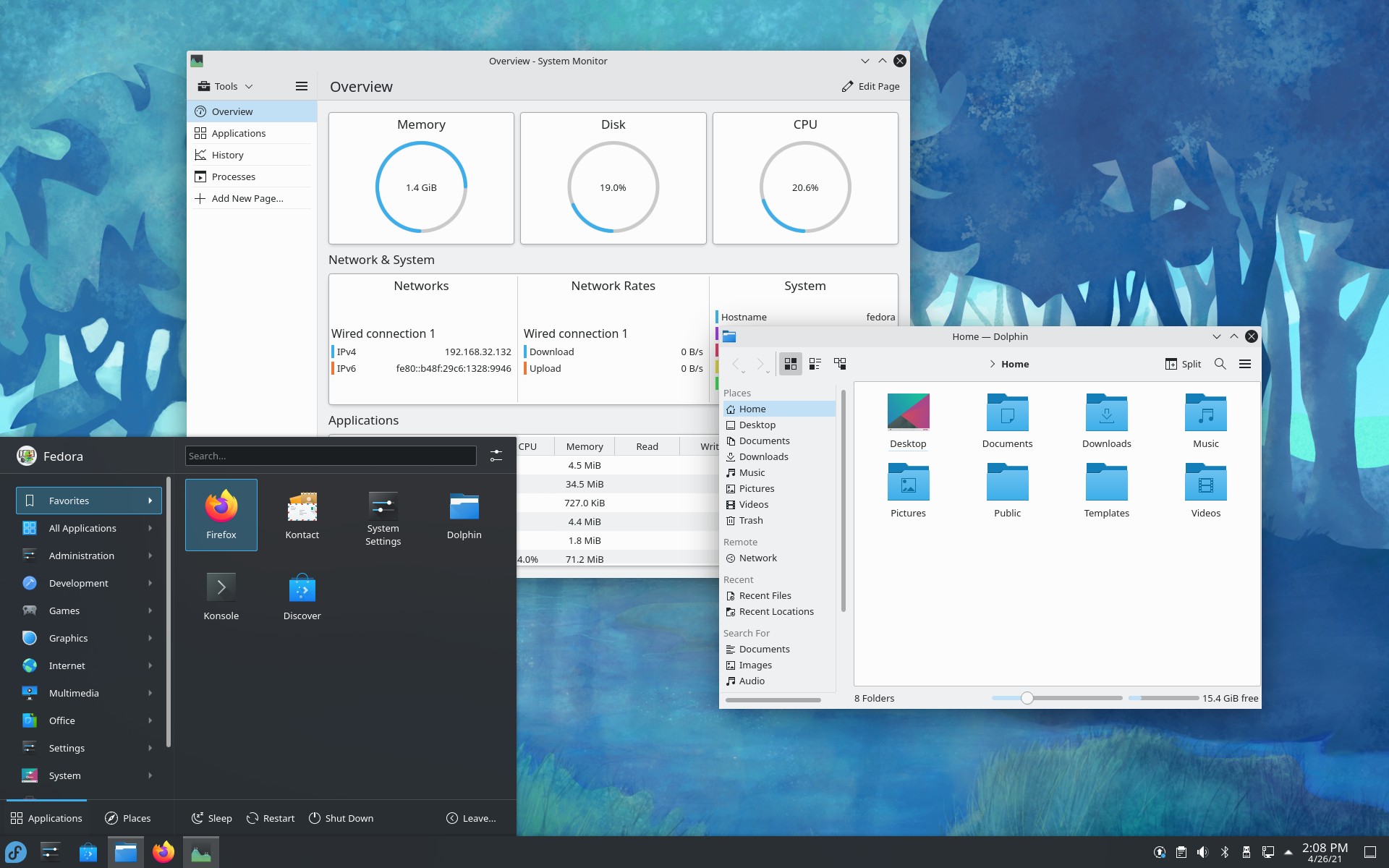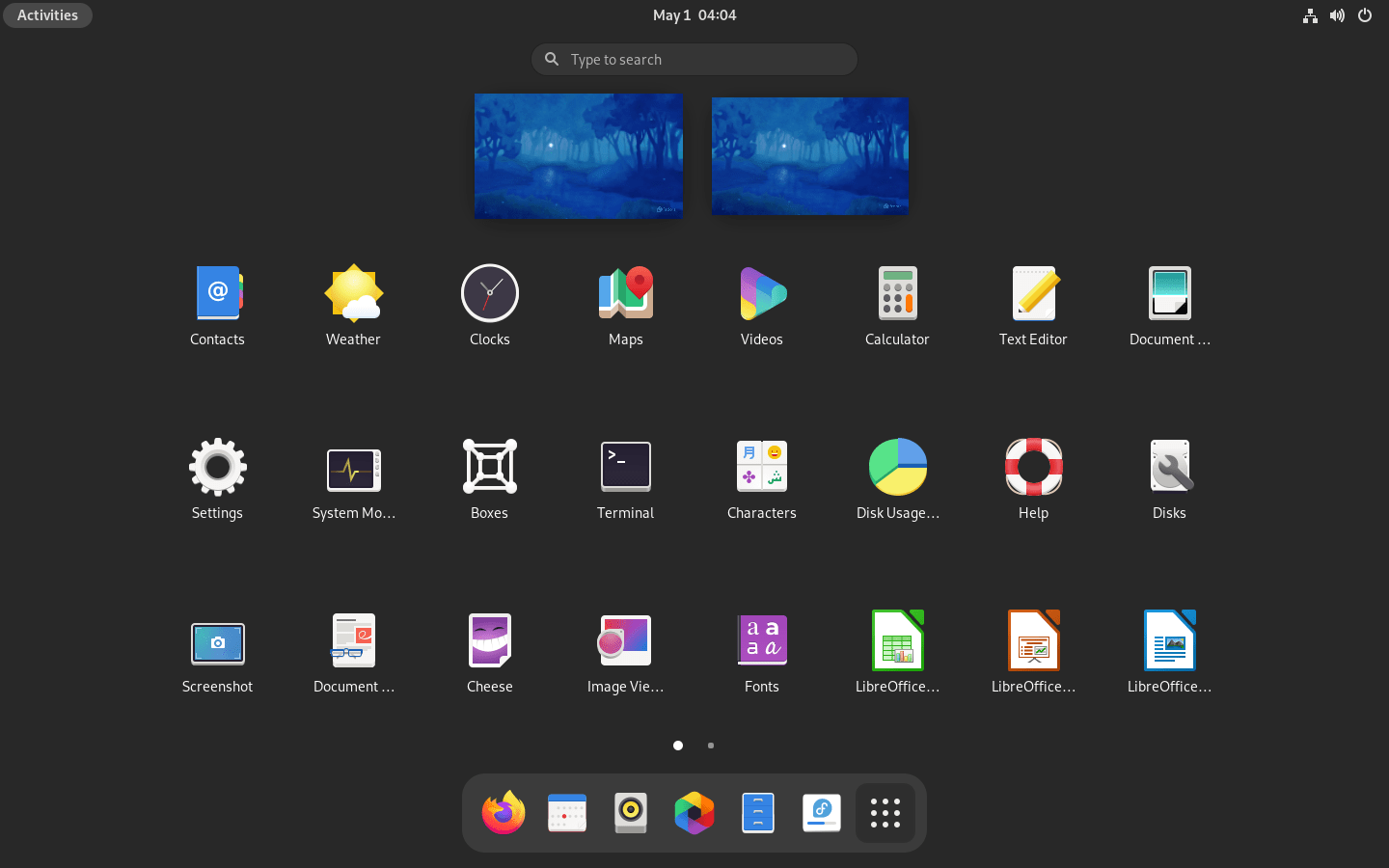Fedora Workstation vs. Fedora Server: Best Use Cases Explained

Fedora is a versatile Linux distribution that caters to a wide range of users and purposes. It’s available in two primary variants: Fedora Workstation and Fedora Server. Understanding the distinctions and intended use cases of each variant is crucial for selecting the most appropriate one for your specific requirements.

Fedora Workstation: The Perfect Desktop Companion

Fedora Workstation is the ideal choice for those seeking a user-friendly, graphically rich, and feature-packed desktop operating system. It’s designed with the end-user in mind, providing a seamless experience for everyday computing tasks such as web browsing, office productivity, multimedia playback, gaming, and software development.
Fedora Workstation comes pre-installed with GNOME, a modern and intuitive graphical user interface (GUI) that enhances productivity and aesthetics. It also boasts an extensive software repository, allowing users to effortlessly install and manage a wide range of applications. The distribution is renowned for its focus on stability and security, ensuring a trouble-free and secure computing environment.
Fedora Server: The Foundation for Powerful Infrastructure
Fedora Server, on the other hand, is tailored specifically for server deployment. It offers a robust and reliable platform for hosting various web applications, email services, file sharing, and other network-centric tasks. Its lightweight nature and efficient resource allocation make it an excellent choice for virtualized environments.
Fedora Server provides exceptional flexibility, allowing administrators to configure and customize the operating system to meet specific requirements. It supports a wide range of server roles, including web servers (Apache, Nginx), database servers (MySQL, PostgreSQL), mail servers (Postfix, Dovecot), and virtualization platforms (KVM, Xen). The distribution’s focus on security and stability ensures the integrity and reliability of mission-critical server applications.
Choosing the Right Fedora Variant: It’s All About Your Needs
Ultimately, the choice between Fedora Workstation and Fedora Server depends on your intended usage. Here’s a simplified breakdown:
-
Go for Fedora Workstation if:
- You’re looking for a polished and user-friendly desktop operating system.
- You primarily use your computer for daily tasks like web browsing, office productivity, and multimedia consumption.
- You want a stable and secure platform that minimizes the risk of system crashes and vulnerabilities.
-
Opt for Fedora Server if:
- You’re setting up or managing servers.
- You require a reliable and customizable platform for web hosting, database management, file sharing, or other network services.
- You appreciate the flexibility to configure and optimize the operating system for specific server roles.
With Fedora, you gain access to a community-driven distribution that emphasizes innovation and cutting-edge technologies. Both Fedora Workstation and Fedora Server receive regular updates, ensuring the latest software, security patches, and bug fixes are always available. Whether you’re a desktop enthusiast or a server administrator, Fedora has the perfect variant to meet your unique computing needs.# Fedora Workstation Vs. Fedora Server: Best Use Cases
Executive Summary
Fedora Workstation and Fedora Server are two distinct versions of the Fedora Linux distribution tailored for different purposes. While Fedora Workstation excels as a user-friendly operating system for everyday computing, Fedora Server stands out as a robust and reliable platform for hosting and managing various services and applications. This comprehensive analysis delves into their key differences, exploring the scenarios where each version shines and providing insights to help users make informed decisions based on their specific requirements.
Introduction
Fedora, developed by the Fedora Project and backed by Red Hat, has gained recognition as a versatile and innovative Linux distribution. Its two primary variants, Fedora Workstation and Fedora Server, cater to diverse user needs. Fedora Workstation is designed with desktop users in mind, offering a polished and intuitive user experience, while Fedora Server prioritizes stability and security, making it ideal for hosting critical infrastructure.
Key Differences: Fedora Workstation vs. Fedora Server
User Interface and Desktop Environment
Fedora Workstation:
- Pre-installed GNOME desktop environment: Provides an elegant and user-friendly interface with intuitive navigation.
- Customizable desktop experience: Users can personalize the tampilan and functionality of their desktops to their preferences.
- Broad software support: Includes a wide range of pre-installed applications for various tasks, from productivity to multimedia.
Fedora Server:
- Minimalist text-based user interface: Lacks a graphical desktop environment, suitable for command-line administration and headless servers.
- Remote management tools: Supports remote access and configuration using tools like SSH and Cockpit, enabling administrators to manage servers remotely.
Included Applications
Fedora Workstation:
- LibreOffice suite: A comprehensive office suite for document creation, spreadsheets, presentations, and more.
- Firefox web browser: A widely used and feature-rich browser for accessing the internet.
- Multimedia applications: Includes various tools for playing music, watching videos, editing photos, and more.
Fedora Server:
- Minimal set of essential utilities: Focuses on providing a stable and secure platform for hosting services.
- Customization through packages: Allows administrators to install additional software packages to meet specific requirements.
Package Management and Updates
Fedora Workstation:
- DNF package manager: Advanced package management system for installing, updating, and removing software packages.
- Regular software updates: Receives frequent updates for both the operating system and applications, ensuring the latest security patches and features.
Fedora Server:
- DNF package manager: Supports the same package management system as Fedora Workstation.
- Extended support lifecycle: Offers longer support lifecycles for critical packages, ensuring stability and reliability for server environments.
System Resources and Hardware Requirements
Fedora Workstation:
- Moderate hardware requirements: Can run smoothly on a wide range of hardware configurations, making it accessible to a broad user base.
- Resource allocation: Allocates system resources based on desktop tasks, prioritizing responsiveness and user experience.
Fedora Server:
- Higher hardware requirements: Demands more powerful hardware to handle intensive server workloads and virtualization.
- Resource allocation: Optimizes system resources for server applications, prioritizing stability and performance.
Target Audience and Use Cases
Fedora Workstation:
- Ideal for everyday computing: Suitable for home users, students, and professionals who need a user-friendly and customizable operating system for various tasks.
- Desktop applications: Supports a wide range of desktop applications, including productivity tools, multimedia software, and games.
- Development and programming: Provides a solid platform for software development and programming, with access to numerous development tools and libraries.
Fedora Server:
- Web hosting: Serves as a stable and secure platform for hosting websites, providing reliable uptime and security features.
- Infrastructure management: Supports the deployment and management of infrastructure components such as web servers, databases, and mail servers.
- Virtualization: Functions as a virtualization platform, enabling the creation and management of virtual machines for various operating systems.
Conclusion
Fedora Workstation and Fedora Server stand as distinct variants of the Fedora Linux distribution, each tailored for specific purposes. Fedora Workstation excels as a user-friendly option for everyday computing and desktop applications, while Fedora Server shines in server environments, providing a stable and secure foundation for hosting services, managing infrastructure, and enabling virtualization. By understanding their key differences and use cases, users can make informed decisions about which version aligns best with their requirements, whether it’s for personal computing or hosting critical services.
Keyword Phrase Tags
- Fedora Workstation
- Fedora Server
- Linux distribution
- Desktop operating system
- Server operating system
- Use cases

The information shared is great! I was looking for something like this. Thanks for sharing such a useful resource. Keep up the good work.
I’m not sure if I agree with the author’s conclusion. I think Fedora Server is a more versatile option than Fedora Workstation. I’ve used both and found that Server has more features and is more customizable.
Great article! The comparison of Fedora Workstation and Fedora Server is very informative. I especially appreciate this line: “Fedora Workstation is designed for the needs of desktop users, while Fedora Server is designed for the needs of server administrators.” This is a critical distinction that can help users make the right choice for their specific needs.
Wow, this article is amazing! It’s so full of useful information that I’m not sure where to start. Thanks for wasting my time. I could have found this information anywhere.
I’m not a computer expert, but even I can tell that this article is over my head. I think it’s probably best for people who know a lot about computers. But hey, at least I learned that Fedora is a type of Linux! Thanks for sharing!
The article provides a good overview of the differences between Fedora Workstation and Fedora Server. However, it could be more concise. I would have liked to see a table summarizing the key differences between the two.
I’m not convinced that Fedora Server is the best choice for all server use cases. I think it depends on the specific needs of the organization. For example, if an organization needs a server for a large-scale database application, then a commercial server operating system might be a better option.
It’s ironic that Fedora, which is known for its community support, has such a poor user forum. I tried to ask a question about Fedora Server, but I didn’t get any helpful responses.
This article is useless. It’s just a bunch of marketing jargon that doesn’t provide any real information. I’m not sure why anyone would waste their time reading this.
The article makes several good points about the differences between Fedora Workstation and Fedora Server. However, I would like to see more information about the performance of the two operating systems in different use cases. For example, how does Fedora Workstation compare to Fedora Server in terms of web serving performance?